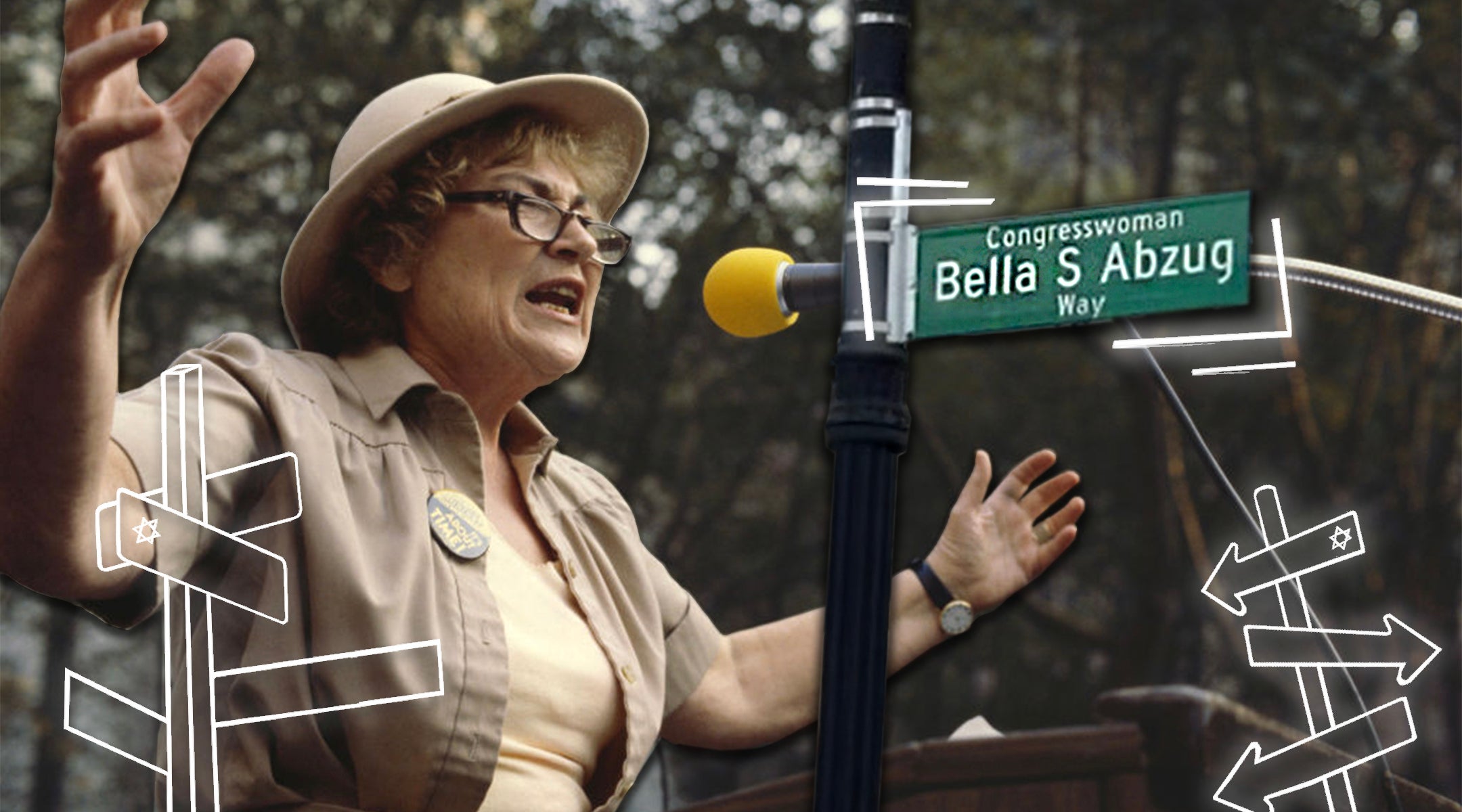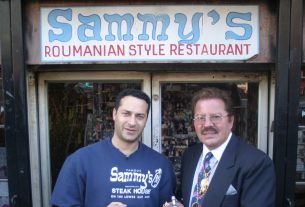On the evening of Nov. 3, 1970, 50-year-old feminist and Jewish lawyer Bella Abzug was elected to represent New York’s 19th Congressional district on Manhattan’s West Side.
Scott Stringer, who went on to become Manhattan Borough President and New York City Comptroller, was then 10 years old. He remembers watching the election returns with his grandmother in Washington Heights, where he grew up. “You see that woman who just got elected to Congress? She is your relative.’” Stringer, who twice ran for NYC mayor, recalled his grandmother saying.
As a kid who was already developing an interest in politics, Stringer said that having his mother’s cousin serve in Congress was like hitting the jackpot. Two years later, when she was redistricted to represent Washington Heights, Stringer worked for her campaign in a role he described as “Chief Literature Giver Outer.”
Over the course of her three terms in Congress, the Bronx-born Abzug became a household name, known for civil rights advocacy and her fierce stances against Richard Nixon and the war in Vietnam. Abzug was also a trailblazer for women’s equality, environmentalism and gay rights. Women’s Equality Day, held each year on Aug. 26 to celebrate women getting the right to vote, grew out of a resolution she introduced in 1971.
During her third term in Congress, she was voted by her colleagues the third most influential member of the House, behind only Speaker Carl Albert and Majority Whip Tip O’Neill.
Nicknamed “Battling Bella” — ”I’ve been described as a tough and noisy woman, a prizefighter, a man-hater, you name it,” Abzug once said about herself — was known for her outsized hats and a personality to match. “She didn’t knock politely on the door. She didn’t even push it open or batter it down. She took it off the hinges forever,” former Rep. Geraldine Ferraro spoke of Abzug at her 1998 funeral, when she died at age 77.
Abzug is memorialized today by a co-named street at the northwest corner of Bank Street and Greenwich Avenue, Bella Abzug Way, near where she lived and worked for nearly 40 years.
At the 2018 street dedication, former City Council Speaker Corey Johnson spoke of Abzug’s grit and determination, noting that she was “ahead of her time on so many issues” which were still relevant at the time of the dedication.
Abzug has a second sector of the city named in her honor as well — a park located in Hudson Yards, extending from 33rd Street to 37th Street in between 10th and 11th Avenue. The irony is palpable, considering Abzug was known for speaking her truth, while Hudson Yards has become synonymous with commercialism and a perceived inauthenticity. Notably, a number of Jewish activists gathered in the park earlier this year to protest the Anti-Defamation League and what they perceived as its support for the Trump administration.
Abzug was born Bella Savitzky in 1920 to Russian-Jewish immigrants in the Bronx. Upon graduating Hunter College with an undergraduate degree in political science, she applied to Harvard Law School and was denied admission on account of her being a woman. Ultimately, Abzug ultimately received her law degree from Columbia University.
In 1942, Abzug met her future husband, Martin Abzug, a stockbroker and writer, on a bus in Miami Beach after a Yehudi Menuhin concert.
Abzug worked as a civil rights lawyer for 23 years, protesting the nuclear arms race and the American military presence in Vietnam, before running for Congress with the catchy slogan, “This woman’s place is in the House—the House of Representatives.”
During her three terms in office, she served as a member of the Government Operations Committee, ensuring that national security policies were more transparent — Abzug’s “sunshine laws,” which she sponsored while chairing the Subcommittee on Government Information and Individual Rights, are the reason government hearings are held publicly today. Abzug also called to amend the Civil Rights Act of 1964 to prohibit discrimination of gay Americans, widely considered to be one of the first American legislators to advocate for gay rights on the national stage.
Bella Abzug with Broadway legend Barbara Streisand (Getty Images)
In 1976, Abzug became the first woman to run for the U.S. Senate from New York; she lost by less than 1 percent to Daniel Patrick Moynihan in the Democratic primary. The following year, she became the first woman to run for New York City Mayor; ultimately, she lost to fellow Jewish politician Ed Koch.
Abzug’s aspirations for higher office paved the way for generations of women in politics who came after her, including Congresswoman Alexandria Ocasio-Cortez of Queens, who once called Abzug the “Queen of the West Side.” She also served as Chairwoman of President Carter’s National Women’s Advisory Council and presided over the first National Conference on Women in Houston in 1977.
“There she came, block by block, offering hope,” Stringer said of the late congresswoman’s dedication to her community, and her city.
Stringer, who himself ran for mayor in New York in 2021 and 2025, sees strong similarities between Abzug and today’s young political activists. Throughout her life, she stood her ground and fought tooth and nail for what she believed was right. He even compared his cousin to Ocasio-Cortez — both became household names during their first terms in Congress, polarizing the nation with their progressive policies while beloved in their home districts.
Like most Jews of her generation, Abzug was a stalwart Zionist and believer in the State of Israel. Stringer believes that in the face of rising antisemitism, Abzug would have held strong to her belief that “Zionism and being progressive [are] not mutually exclusive.”
“I think if Bella Abzug was here today, she would be on the streets, at the podium, fighting for our democracy,” Stringer said, when discussing how the congresswoman may have reacted to the regressive policies of the Trump administration.
After her unsuccessful runs for office, Abzug co-founded the Women’s Environment and Development Organization, working with the United Nations to attain equal rights for women around the world. Before her death, Abzug was inducted into the Women’s Hall of Fame in Seneca Falls.
Stringer, who himself attended the co-naming ceremony of Bella Abzug Way in 2017, believes it is imperative the next generation remember her legacy: “The way you build movements is not to think that you did it on your own . . . but rather to recognize the shoulders you stand on.”
He also hopes that the intersection will pique the interest of New York’s youngest generation: “It’s not just for those of us who lived through those times, but it’s also for the kids and the students and people [who] will look up and say, ‘Who is that?’”
Jewish stories matter, and so does your support.




